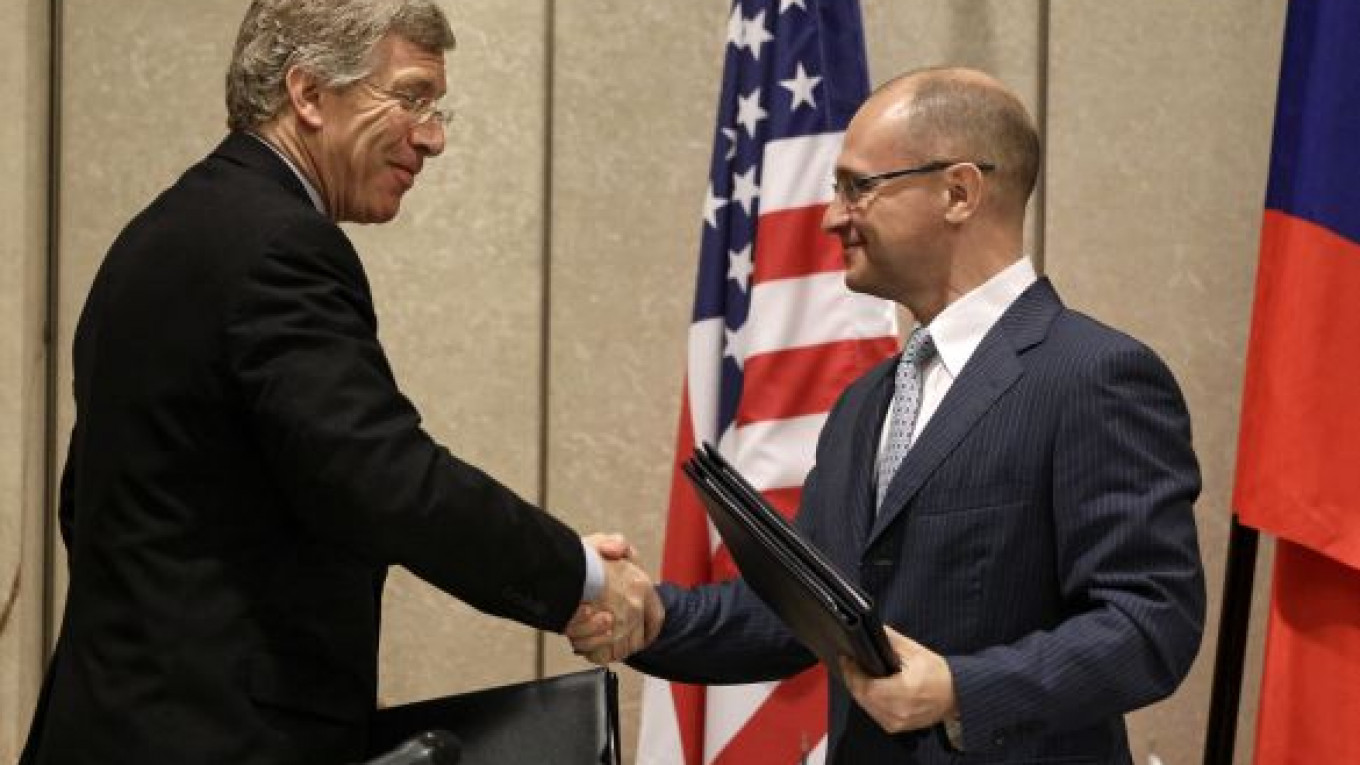The U.S. deputy energy secretary announced plans Tuesday for the United States and Russia to enhance cooperation in nuclear reactor design and maintain joint efforts to prevent nuclear materials from falling into the wrong hands.
Daniel Poneman said after a working-group meeting between the two countries that they have developed a "strong partnership" in the field.
Moscow and Washington have launched a joint effort to return fuel from Soviet and U.S. nuclear reactors built overseas.
Returning the fuel for reprocessing reduces the danger of highly enriched uranium falling into the wrong hands.
"A matter of kilograms of this material is highly dangerous and could be used for terrorist purposes, and … we have repatriated many multiples of that quantity," Poneman said after the talks.
Rosatom chief Sergei Kiriyenko said it has already removed a total of more than 2,000 kilograms of highly enriched uranium from research reactors in six former Soviet republics and Soviet bloc nations.
Kiriyenko and Poneman also noted that the conversion of research reactors in Russia and the United States to the use of low-enriched uranium fuel is essential for combating nuclear terrorism.
"We are talking about hundreds of potential 'dirty bombs' that could have fallen into the hands of terrorists," Kiriyenko said. "Russia and the U.S. have taken responsibility for security in all the countries we supplied with highly enriched uranium."
Poneman said the effort seeks to replacement highly enriched uranium with low-enriched uranium, allowing the countries to continue operations for scientific applications.
Poneman and Kiriyenko also signed a statement Tuesday confirming Russia's intention to begin conversion of its own research reactors from highly enriched to low-enriched uranium.
They added that U.S. and Russian officials are finalizing the text of a bilateral agreement on research and development in nuclear energy that is expected to be ready for signing in September.
The agreement is intended to set the framework for shared efforts in designing prospective nuclear reactors and fuel.
Despite disagreements over the Syrian crisis and a rift over U.S.-led missile defense plans for Europe, Moscow and Washington have cooperated on key global issues such as the war in Afghanistan, counterterrorism and nuclear security.
A Message from The Moscow Times:
Dear readers,
We are facing unprecedented challenges. Russia's Prosecutor General's Office has designated The Moscow Times as an "undesirable" organization, criminalizing our work and putting our staff at risk of prosecution. This follows our earlier unjust labeling as a "foreign agent."
These actions are direct attempts to silence independent journalism in Russia. The authorities claim our work "discredits the decisions of the Russian leadership." We see things differently: we strive to provide accurate, unbiased reporting on Russia.
We, the journalists of The Moscow Times, refuse to be silenced. But to continue our work, we need your help.
Your support, no matter how small, makes a world of difference. If you can, please support us monthly starting from just $2. It's quick to set up, and every contribution makes a significant impact.
By supporting The Moscow Times, you're defending open, independent journalism in the face of repression. Thank you for standing with us.
Remind me later.






